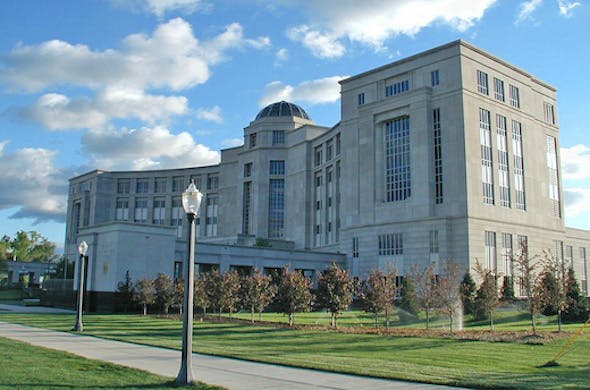Catholic Schools Sue Michigan Over Civil Rights Reinterpretation
The recent ruling in the state’s high court put Catholic schools at risk of violating protections for gay and transgender individuals.

Catholic schools are suing Michigan after the Great Lake State’s highest court ruled last year that sexual orientation and gender identity are protected under the state’s civil rights law — even at religious institutions.
Two separate suits have been filed in the Western District of Michigan by Catholic institutions, with major players in religious liberties litigation at the helms of their cases.
Sacred Heart Academy, a classical Catholic school, filed suit in late December under the auspices of the Alliance Defending Freedom. Meanwhile, St. Joseph Catholic Church, a parish that operates a school 20 miles north of Lansing, will be represented by the Becket Fund in its concurrent suit.
The twin suits come after the state’s supreme court expanded the definition of sex in the state’s anti-discrimination ordinance, the Elliot-Larsen Civil Rights Act.
The 1977 statute prohibits discrimination in the state on the basis of “religion, race, color, national origin, age, sex, height, weight, familial status, or marital status” in a variety of services, including “educational facilities.” The legislation does not provide an exemption for religious institutions.
In July 2022, the Michigan supreme court ruled that “discrimination on the basis of sexual orientation necessarily involves discrimination because of sex,” thereby violating the civil rights law.
Both schools raise concerns that the teaching and observance of Catholic doctrine could be curbed by the new ruling.
The suits include a litany of current practices at the school that accord with Catholic faith but could be deemed illegal under the expanded definition of sexually based discrimination — including curricular materials, gender-separated activities, and a commitment to traditional understandings of gender and marriage.
“Michigan’s new understanding of ‘sex’ discrimination deems it unlawful for St. Joseph’s to follow the 2,000-year-old teachings of the Catholic Church, including its teaching that marriage is a lifelong commitment between one man and one woman, that sexual relations are limited to marriage, and that human beings are created as either male or female,” the parish’s counsel at Becket wrote in its brief.
The Grand Rapids-based Sacred Heart Academy says the school “cannot embrace a vision of marriage and human sexuality that is inconsistent with Catholic doctrine because that undermines Sacred Heart’s vision of human flourishing.”
The suits additionally highlight how such an anti-discrimination regime would compel the institutions to change their hiring practices, potentially violating the legal principle of “ministerial exception.”
The legal doctrine, affirmed by the Supreme Court in Hosanna-Tabor Evangelical Lutheran Church and School v. Equal Employment Opportunity Commission, grants religious institutions autonomy in employment practices “without government intrusion” — exempting them from federal anti-discrimination law.
Conflicts between civil rights protections and religious liberties have been growing since LGBT individuals emerged as a protected class, challenging the autonomy of both believers and their institutions.
Liberals and conservatives are in an ongoing struggle to define discrimination — or at least to prioritize which comes first. LGBT activists argue that religious institutions should be prohibited from discriminating against homosexuality and transgender ideology.
Conservatives, however, say that such arguments discriminate against religion, and religious institutions — and believers — should not be compelled to violate their core tenets by anti-discrimination laws.
Currently, the Supreme Court is deciding a case, 303 Creative v. Elenis, that hinges on a similar principle with regard to Colorado civil rights law. In the case, a Christian web designer, Lorie Smith, wants to advertise her work on wedding websites. Because of her religious convictions, however, Ms. Smith does not create wedding materials for same-sex marriages, which is a violation of Colorado’s anti-discrimination law as currently understood.
In Michigan, the court’s expansion of sexually based discrimination comes after decades of failed legislative attempts to include LGBT individuals in the Elliot-Larsen Act. Amendments to this effect have never passed the state legislature. The Republican co-sponsor of the original anti-discrimination bill in the Michigan state house, Melvin Larsen, is himself a former Catholic school principal.

